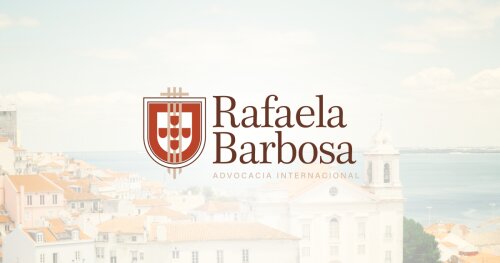Best Divorce & Separation Lawyers in Lisbon
Share your needs with us, get contacted by law firms.
Free. Takes 2 min.
Free Guide to Hiring a Family Lawyer
List of the best lawyers in Lisbon, Portugal
About Divorce & Separation Law in Lisbon, Portugal
Divorce and separation law in Lisbon, Portugal, align with the country's broader legal framework, governed by the Portuguese Civil Code and other relevant statutes. Divorce in Portugal can happen in two forms: by mutual consent or through litigation. Understanding the intricacies of these processes is essential for anyone undergoing marital dissolution. Child custody, alimony, asset division, and residency are key areas addressed during divorce and separation procedures. Ensuring decisions are equitable and respect the rights of both parties is central to Portuguese law.
Why You May Need a Lawyer
Seeking legal advice during divorce or separation can be critical for various reasons. Firstly, legal complexities and paperwork can be overwhelming without professional assistance. Lawyers can provide clear insights and manage documentation effectively. In cases involving contested divorces, child custody disputes, division of substantial assets, or domestic violence issues, legal representation becomes crucial. Lawyers also help safeguard your rights and advocate for fair settlements, ensuring that agreements reached respect legal standards and personal interests.
Local Laws Overview
Portuguese law allows for two types of divorce: by mutual consent and by litigation. A mutual consent divorce requires an agreement between spouses on all divorce terms. If this is not possible, a litigated divorce is filed, involving court intervention. Portuguese law addresses the welfare of children in separation cases, stressing the best interests of the children, including suitable arrangements for their support and custody. Asset division follows the regime of property chosen during marriage, typically community property or separation of property. Alimony may be granted based on the financial situation of both parties and their contribution to the family ground.
Frequently Asked Questions
What is the difference between divorce by mutual consent and litigated divorce?
Divorce by mutual consent requires agreement between spouses on all issues, allowing them to file a petition together. Litigated divorce occurs when spouses cannot agree, resulting in court proceedings to resolve disputes.
How is child custody determined in Portugal?
Custody decisions prioritize the child's best interests, often resulting in shared custody arrangements unless specific circumstances necessitate alternative solutions. The court considers the child's well-being, age, and both parents' ability to provide care.
Can a foreigner file for divorce in Lisbon?
Yes, foreigners can file for divorce in Lisbon, provided at least one spouse resides in Portugal. The proceedings will follow Portuguese law.
How are assets divided in a divorce?
Asset division depends on the marital property regime chosen: community of property or separation of property. Assets acquired during marriage are usually split equally under the community of property regime.
Is alimony common in Portuguese divorces?
Alimony may be awarded but is not automatic. It depends on each spouse's financial situation and contributions to the marriage. The court assesses the need and ability to pay when deciding on alimony.
What costs are associated with filing for divorce in Lisbon?
Costs include court fees, lawyer fees, and other legal expenses. The exact amount varies based on the complexity of the case and the fees agreed upon with legal counsel.
How long does it take to finalize a divorce in Portugal?
Divorce by mutual consent can be swift, sometimes taking only a few months. Litigated divorces take longer due to court scheduling and complexity, often six months to over a year.
What happens if one spouse refuses to agree to divorce?
If one spouse refuses to agree, the other can still file for a litigated divorce, which will involve court intervention to resolve the matter.
Are prenuptial agreements recognized in Portugal?
Yes, prenuptial agreements are recognized and enforceable in Portugal. They must be notarized to be valid and specify the property regime applied during the marriage.
Can I change my name after divorce?
Yes, you can choose to revert to your maiden name following a divorce. This decision can be made during the divorce proceedings.
Additional Resources
Several resources can assist those seeking guidance on divorce and separation in Lisbon. The Ordem dos Advogados provides information on finding qualified legal professionals. Local family mediation services can also offer support. Governmental websites often contain useful guidance regarding family law and child welfare. Various non-profit organizations offer resources for individuals experiencing family challenges.
Next Steps
If you need legal assistance for divorce or separation in Lisbon, start by consulting with a family law attorney experienced in Portuguese law. Assess your case details and gather necessary documents, such as marriage certificates, financial records, and any relevant agreements. Schedule a consultation to discuss your situation, outline your goals, and develop a legal strategy with your lawyer. Address immediate needs, such as temporary financial support or child arrangements, if necessary.
Lawzana helps you find the best lawyers and law firms in Lisbon through a curated and pre-screened list of qualified legal professionals. Our platform offers rankings and detailed profiles of attorneys and law firms, allowing you to compare based on practice areas, including Divorce & Separation, experience, and client feedback.
Each profile includes a description of the firm's areas of practice, client reviews, team members and partners, year of establishment, spoken languages, office locations, contact information, social media presence, and any published articles or resources. Most firms on our platform speak English and are experienced in both local and international legal matters.
Get a quote from top-rated law firms in Lisbon, Portugal — quickly, securely, and without unnecessary hassle.
Disclaimer:
The information provided on this page is for general informational purposes only and does not constitute legal advice. While we strive to ensure the accuracy and relevance of the content, legal information may change over time, and interpretations of the law can vary. You should always consult with a qualified legal professional for advice specific to your situation.
We disclaim all liability for actions taken or not taken based on the content of this page. If you believe any information is incorrect or outdated, please contact us, and we will review and update it where appropriate.

















